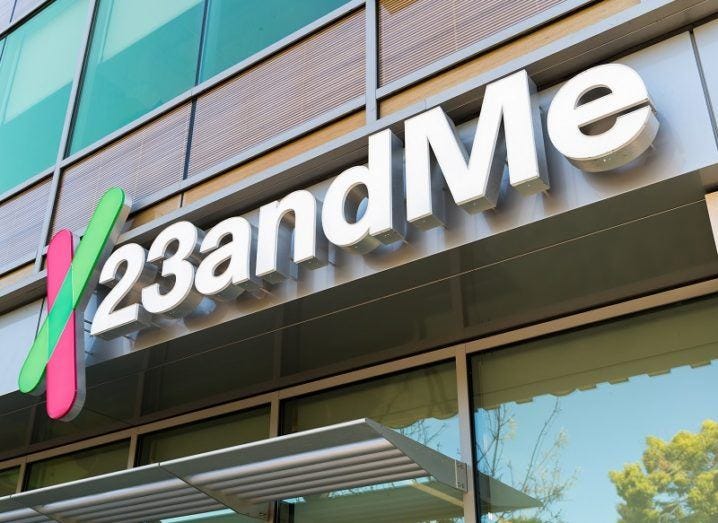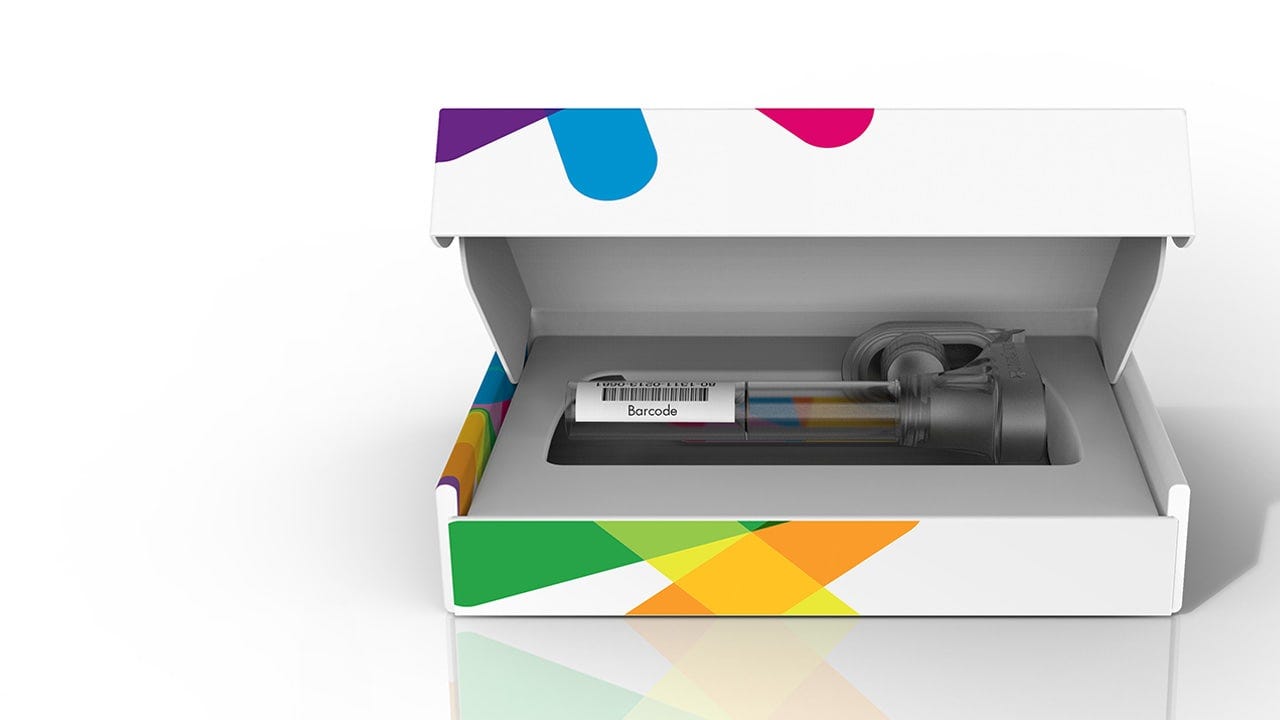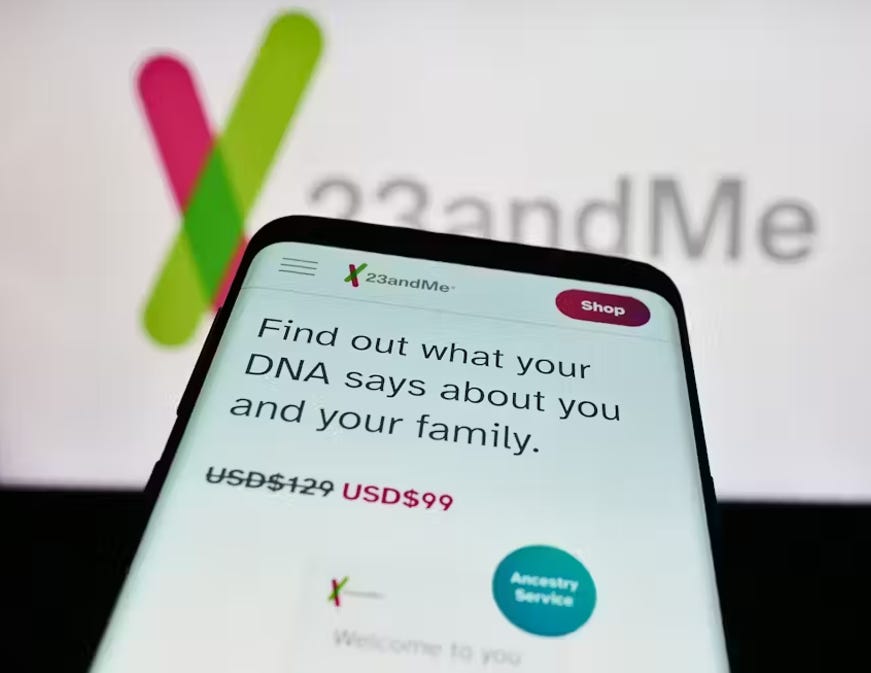Is 23andMe Selling Your Secrets?
In 2006, genetics company 23andMe burst onto the scene as a revolutionary force in personal genomics. The promise of unlocking the secrets of our DNA captivated the public's imagination. Customers simply spit into a vial, and their DNA returned information from ancestry to health risks.
However, the company's journey has been marked by significant challenges, including regulatory hurdles and public skepticism. Despite its initial success, 23andMe has faced significant setbacks, as well as hiding a dark secret.
A Legal Battle
In 2013, the FDA issued a warning letter to 23andMe, ordering the company to stop marketing its new health-related tests. The agency had concerns about accuracy, validity, and misinterpretation of results.
But a Scientific American article stated that the FDA missed the real consumer threat; the Personal Genome Service seemed to be a slick front for one of the largest data gathering operations ever. Anne Wojcicki, co-founder of 23andMe, is the sister of Susan Wojcicki, the former CEO of YouTube, who stepped down in 2023.
The ties between the two companies are heavily intertwined. YouTube is a subsidiary of Google, and Anne Wojcicki was married to Google’s co-founder Sergey Brin from 2007-2015. Google started off as a web search tool, but now hoards search queries and data that’s sold to advertisers, making billions. Additionally, in recent years, Google has expanded its reach into the medical field. The company now owns medical and pharmaceutical entities, operates research laboratories, and promotes medical information on its primary search engine.
23andMe, from the outset, intended to follow Google’s model, monetizing its customers' genetic data, says The Atlantic. Co-founders Anne Wojcicki and Linda Avey outright told the San Francisco Chronicle: “The long game here is not to make money selling kits, although they’re essential to get the base level data.”
Richard Scheller, 23andMe’s chief scientist added: “I thought it was genius actually, that people were paying us to build the database.” (Forbes, Carson & Chaykowski)
A striking aspect of this story is that a company that had yet to turn a profit catapulted its owner to the 33rd spot on the 2019 list of Richest Self-Made Women. She has an estimated net worth of $690 million, almost entirely derived from her roughly 30% stake in 23andMe, valued at $2.5 billion by investors.
Their massive DNA library was to fuel a “biotech machine” not only indicating genetic predispositions to certain diseases but also helping create the drugs that were to treat those diseases.
So how does a company survive by slashing prices to bare bones and not pursuing repeat customers? Normally that spells business suicide, but what if the long game was always about the data?
Facing Bankruptcy
23andMe is now teetering on the brink of bankruptcy and is considering selling the genetic data of its 15 million customers. Users can delete their data, but the company also retain it for three years, raising serious privacy concerns. Additionally, data already sold to researchers may be beyond the company's control, leaving it vulnerable to potential misuse.
23andMe’s stock price has plummeted over 97% in recent years and in 2023, a major data breach compromised the information of nearly seven million users that resulted in a $30 million class-action settlement. More recently, all company directors resigned.
23andMe's co-founder and CEO is attempting to buy the company's remaining shares to take back control, and is considering selling the company, which means the DNA of its 15 million customers would be up for sale also.
That means pharmaceutical companies could get their hands on this data, a precedent that’s already been set. In 2018, GlaxoSmithKline paid $300 million to access the test results of 5 million 23andMe customers, to design new drugs. All told, 23andMe entered into 15 partnerships with different drug companies.
Worse, insurance companies could deny coverage based on potential future health risks. If you didn't read their contracts and privacy policies carefully, you unknowingly granted 23andMe significant power. One clause allows the company to share de-identified genetic data with third parties, regardless of user consent.
The company can also share user data with third parties, and allow for the disclosure of genetic information to law enforcement, as DNA data is not protected by HIPAA.
Even if you’ve never given a DNA sample to the company, it doesn’t matter. If a close relative did so, your genetic information is effectively in their hands. The idea of an "anonymous" genome is becoming a fantasy as it becomes easier to identify people based on fragments of DNA.
In life, there are no coincidences. The landscape of genetic information has been left with little oversight and a massive potential for widespread misuse. I’m left to wonder if the entire thing was always set up to topple, allowing Google and other companies to invest and profit from this precipitous fall.
Your presence here is greatly valued, and that’s why all our articles are free on this site. But if you've found that the content benefits your life, please consider supporting it through a cost-effective paid subscription. This plays a vital role in covering operational costs and supports the continuation of this independent, unbiased research and journalism work. Thank you!!
If shy about commitments, feel free to leave a one-time tip!





